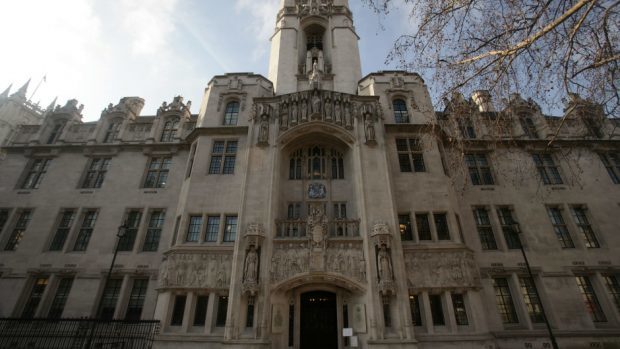Farmers across the country were said to have “dodged a bullet” after the UK’s highest court backed an Aberdeenshire man in a £1 million tax case.
Frank Smart, of Torphins, won his case against HM Revenue and Customs (HMRC) after a lengthy legal battle that went all the way to the Supreme Court.
The justices’ dismissed HMRC’s claim that the farmer should not be allowed to recover the VAT paid while purchasing “single farm payment entitlement” (SFPE) subsidies.
The verdict of the Supreme Court was hailed as key to protecting hard-pressed farmers and other subsidised businesses from tighter restrictions on reclaiming VAT.
The justices’ decision not to send the case to the Court of Justice of the European Union (CJEU) was also viewed as a “sign of things to come” for Britain’s post-Brexit future.
Glyn Edwards, VAT director at MHA MacIntyre Hudson, had been a legal advisor to Mr Smart’s team.
Last night, he said: “If HMRC had won instead, every business in receipt of subsidy could have been subject to a restricted right of VAT recovery.
“In farming the likely impact would have been that VAT recovery would be restricted, in whole or part, on any costs associated with receipt of subsidy.
“For example, VAT on farming equipment would be at risk if used to keep land in good agricultural and environmental condition, a requirement attached to many subsidies.
“VAT on professional costs and general overheads would also have been at risk.
“By establishing that subsidy has no role to play in determining VAT recovery, the Supreme Court has asserted an important principle which will protect the true value of subsidy as we move into the post-EU era.”
He added: “In the context of Brexit, the Supreme Court’s decision could be a sign of things to come.
“The Supreme Court declined to send Frank Smart’s case to the CJEU and were bold in making a decision in his favour.”
The case centred on the question of whether a taxpayer can deduct VAT which it has incurred in purchasing entitlements to an EU farm subsidy, which farmers are allowed to trade.
Mr Smart had spent about £7.7m between 2007 and 2012 buying 34,377 SFPE units, in addition to his initial allocation of 194.98 units for Tolmauds Farm.
He had tried to deduct VAT of almost £1.055m, but HMRC refused.
The farmer appealed and won after a tribunal accepted that the transaction was made to develop the “business operations” of the farm, through the purchase of neighbouring farms, construction of farm buildings and establishing a wind farm.
It found that the funding available through the purchase of the SFPE units did not form a separate business activity, but was “a wholly integrated feature of the farming enterprise”.
HMRC appealed to the Upper Tribunal, which was refused, and then it was dismissed again at the Court of Session.
The final appeal to the Supreme Court was rejected by Lord Reed, Lord Wilson, Lord Hodge, Lord Briggs and Lady Arden.
They said Mr Smart, as a taxable person who was acquiring assets in support of current and planned economic activities, was entitled to an immediate right of deduction of the VAT paid on the purchase of the SFPE units.
An HMRC spokesman said: “We’re disappointed with this decision and we are considering the terms of the judgment and its implications.”
Mr Smart declined to comment last night.
